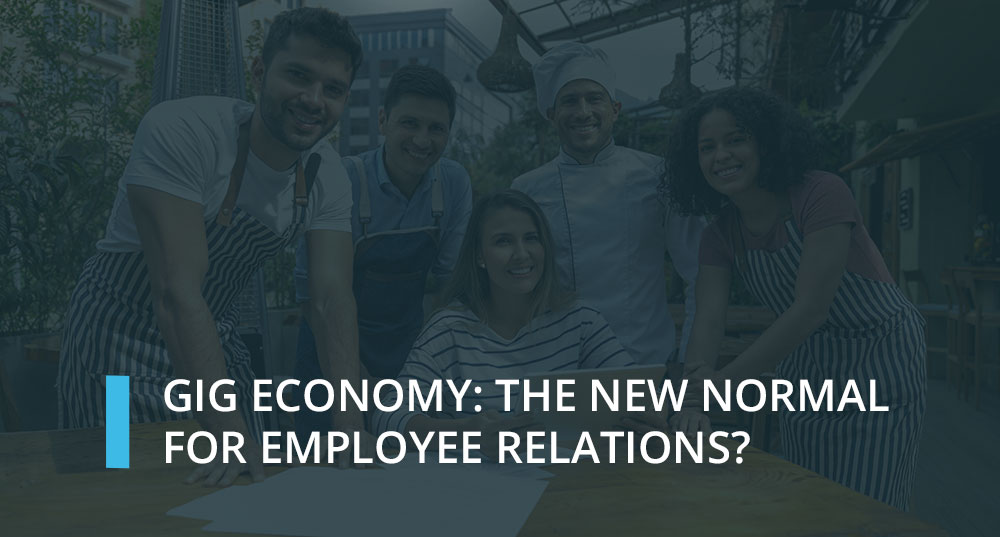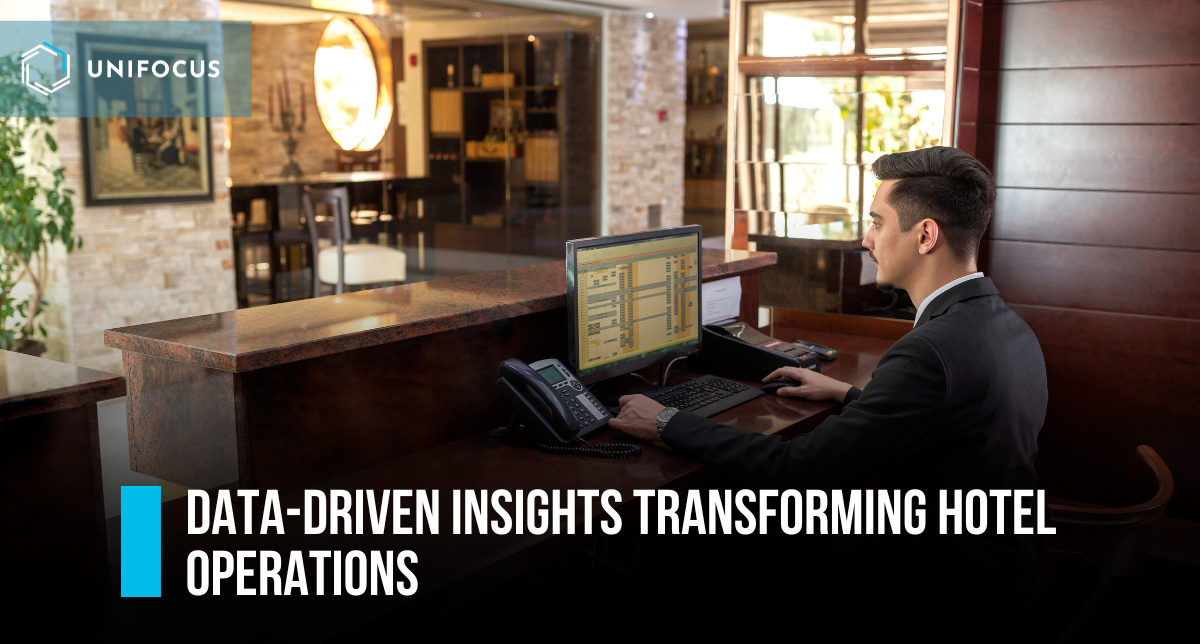As the saying goes, change is inevitable, and for hospitality-based businesses around the world, it is certainly ringing true for employee relations and how organizations need to manage their workforce better. While hotels and restaurants have mostly stuck to strategies and processes at least half a century old, workers have moved on. They expect a better deal from employers if their loyalty and commitment is to be earned.
As the hospitality industry continues with its labor shortage struggle, business stakeholders now have an opportunity to revisit how they approach workforce management to address the modern needs and expectations of today’s employees. Yet to be successful, businesses need to understand and adapt their operations to the oversized influence of the gig economy on employee mindsets. With up to 36 percent of US workers taking part in the gig economy which is expected to grow to 50 percent by 2027, the benefits experienced by more and more of the population are leading traditional employees to raise their standards over what counts as a mutually beneficial work environment.
Despite the gig economy’s growing attraction to hospitality workers, it is still possible for the industry to reverse the trend of dwindling employee numbers. Rather than viewing it as a threat, businesses should approach the issue as an opportunity to learn what the gig economy has to teach us. By adopting new ways of tackling workforce management that mirror gig economy advantages, owners and managers can soon find that they are not only able to attract and retain employees but can get back on track toward ensuring sustainable business growth.
Enhanced Flexibility- What Your Employees Want Most
One of the draws of the gig economy is the flexibility necessary to create a better work/life balance. Roughly 59 percent of male and 75 percent of female gig workers actually refer to this as the leading benefit of working independently. But as more workers in traditional employment roles see their gig economy peers benefit from a more flexible lifestyle, they too are beginning to demand the same advantages. According to a survey of HR managers, as much as 70 percent indicated that workplace inflexibility was the leading cause behind resignations.
Introducing schedule flexibility may at first seem to conflict with hospitality business goals and needs, but through technology, it can be achieved without risking service quality or guest satisfaction. Using platforms that can forecast demand by the week, day and even hour, businesses can provide their employees with options to pick and work shifts based on upcoming staffing needs. With just the push of a button, managers can push shift options to employees’ personal devices, with any selection being automatically updated within their workforce scheduling system. While saving your managers from countless hours of having to create and adjust schedules manually, a flexible approach to scheduling can make all the difference between maintaining a content and loyal workforce or one that is eyeing the exits for better job opportunities.
Workplace Flexibility Also Means Offering Flexible Pay
You’ve tried raising wages to attract and retain employees but, like many other businesses within hospitality, have little to show for your efforts that come even close to resolving labor shortages. Looking at current gig economy trends, one particularly alarming statistic is that more than half of gig workers indicate they wouldn’t return to traditional employment for any amount of money.
Likewise, for hospitality’s frontline workers, dangling a few extra dollars per paycheck doesn’t mean much for job roles that remain low pay, as your employees have more significant priorities than earning a trivial wage bump. What matters more to them is simply the ability to pay their bills on time. Your business can now address this crucial demand and earn a reputation for caring about employee wellbeing by adopting flexible pay abilities. Using automated technologies doesn’t have to be an additional burden for managers either. AI can calculate how much an employee is owed, both in wages and tips, with payment able to be processed whenever a worker needs it and as soon as a shift is worked.
For your employees, this means not falling into debt due to outstanding bills. For your operations, it means providing employees with a more stable work environment that gives them one less reason to look for a job elsewhere.
A Fulfilled Employee is a Loyal and Productive Employee
The gig economy’s influence has also led to more employees seeking a greater sense of fulfillment from their jobs. Regardless of their position, your workers want to feel that the responsibilities they perform really do contribute to business and personal career growth.
Ensuring job fulfillment is by no means exclusive to gig economy jobs and can be a powerful tool in retaining productive employees if hospitality businesses address the issue appropriately. Even for frontline workers such as housekeepers, showing a little appreciation and providing opportunities to learn new skills can ensure job satisfaction and loyalty. Using newer and more robust labor management tools, managers can set up a rewards program that recognizes employees for a job well done or for learning how to complete tasks that extend beyond their typical responsibilities. This gives your employees ample opportunities to see how their actions contribute to business success and incentivizes them to look for ways to improve service offerings and, ultimately, the guest experience.
Taking this approach to employee fulfillment can also dampen the impact of a shortage in labor. Providing workers with opportunities to learn more skills means they can be cross-utilized to fill different roles as demand fluctuates between various departments. A win-win for employers and their staff teams alike, a workforce strategy centered on employee recognition and cross-utilization translates into more engaged and loyal employees who feel less inclined to explore other career options.
Tackling Burnout With Streamlined Task Management
Another major draw of the gig economy that’s seeing workers quit traditional jobs is it being viewed as a way to escape the increase in employee burnout. For both hotels and restaurants, burnout has reached record levels thanks to post-pandemic worker shortages and staff having to pick up the slack for those who resign.
So what can your business do to relieve the pressure and prevent burnout and staff resignations from becoming an endless cycle? With a bit of research into how workflows are organized, many businesses will find that it’s inefficiency, not a lack of staff, that’s causing assignments to stack up and take longer to complete. From housekeeping tasks and guest requests to maintenance checks and glitch reports, automated task management technologies have become practically indispensable to reducing workplace stress while ensuring the timely completion of tasks.
Able to be accessed using an employee’s own device, task management software offers each staff member the ability to know exactly who needs to do what and where. Preserving the peace of mind and valuable time of your employees, this crucially means spending less time scurrying to find out what assignments require attention next. It also means no more trying to guess whether a task has already been assigned to someone else or if it still needs to be addressed. With more advanced task management tools, managers can even prioritize and re-prioritize assignments as business needs change throughout a shift. Armed with this ability, your staff and managers will undoubtedly appreciate the substantial time-savings and efficiency gained, while your guests can benefit from faster and more responsive service.
When in Doubt, Ask Your Employees
Worker expectations and needs constantly evolve, so knowing how workforce management processes must adapt can be challenging. As the gig economy continues to gain more influence on traditional workplace environments, what likely works best for your managers in keeping pace with trends is to seek out employees' opinions.
With newer and more flexible pulse survey tools, hotel and restaurant managers are no longer limited to delving into employee mindsets on a sporadic basis that does little to uncover actionable insight. Instead, your management teams can now easily create surveys with just a few clicks of a mouse. Managers can effortlessly customize pulse surveys using a menu of drop-down question options to ask the right questions that lead them to the right kind of insight. Perhaps employees share the opinion that a particular service offering takes up too much of their time and does little to enhance guest experiences. Others may feel that a department area requires more resources to meet guest demand and expectations. With modern pulse survey capabilities, such issues can be identified and addressed in real time, providing your business with the vital time it needs to make adjustments before staff satisfaction levels drop.
UniFocus: Your End-to-End Workforce Management Solutions Provider
Interested in discovering how your hotel or restaurant can adapt to gig economy worker expectations while maintaining a successful and profitable business? Let UniFocus, with its fully comprehensive workforce management technology, show you a better alternative to meeting staff and guest needs in a way that always delivers results: info@unifocus.com.






